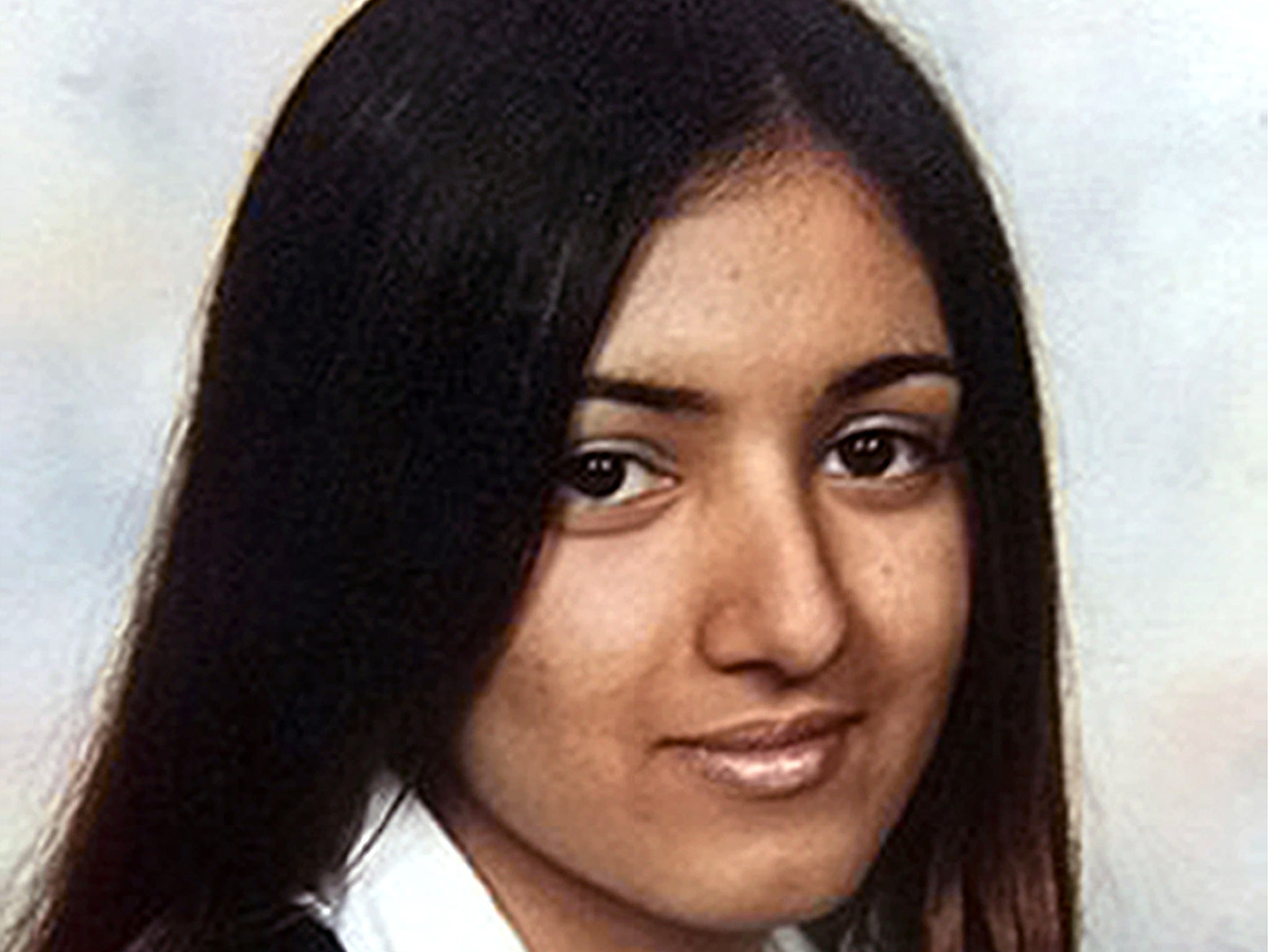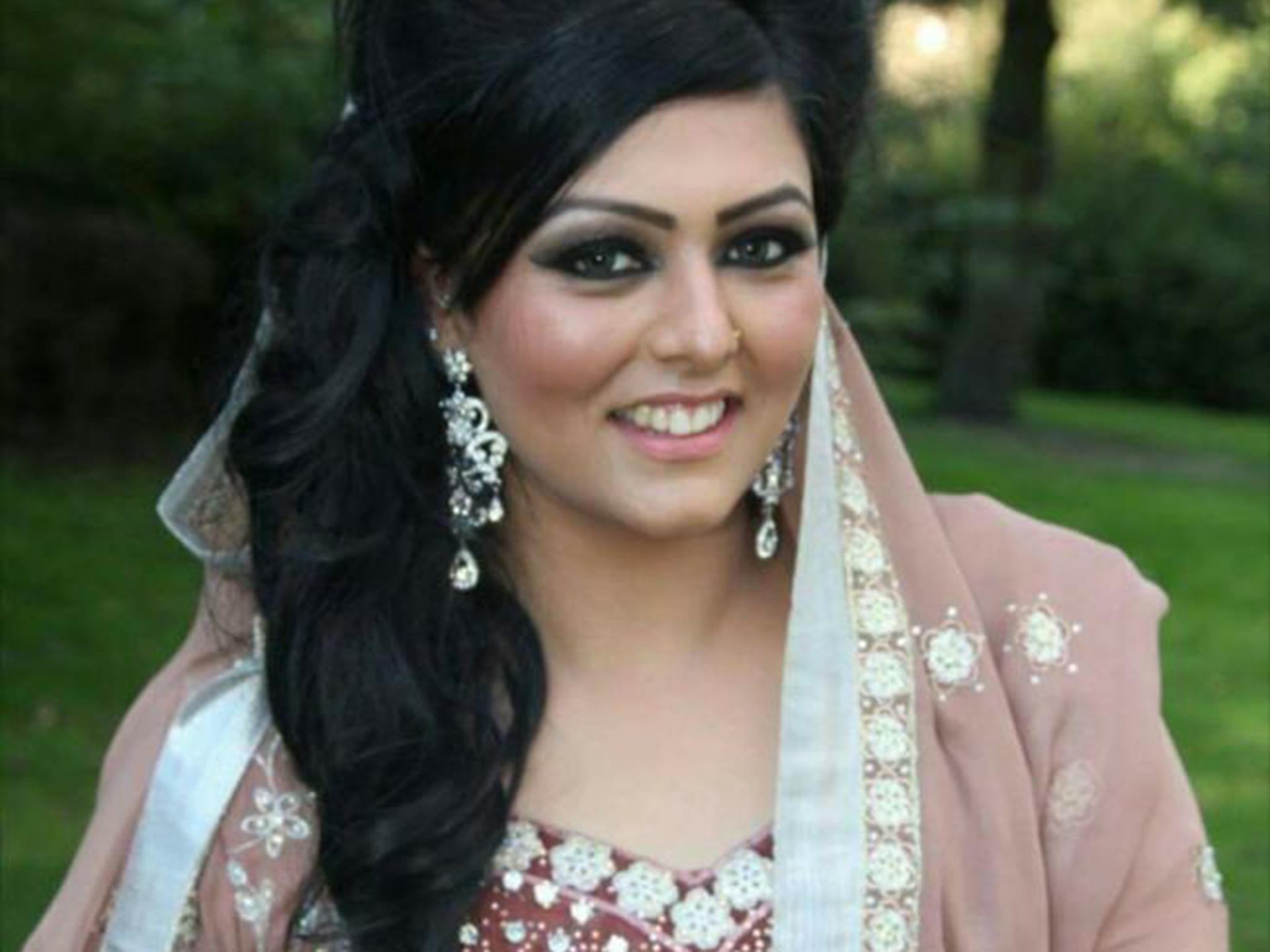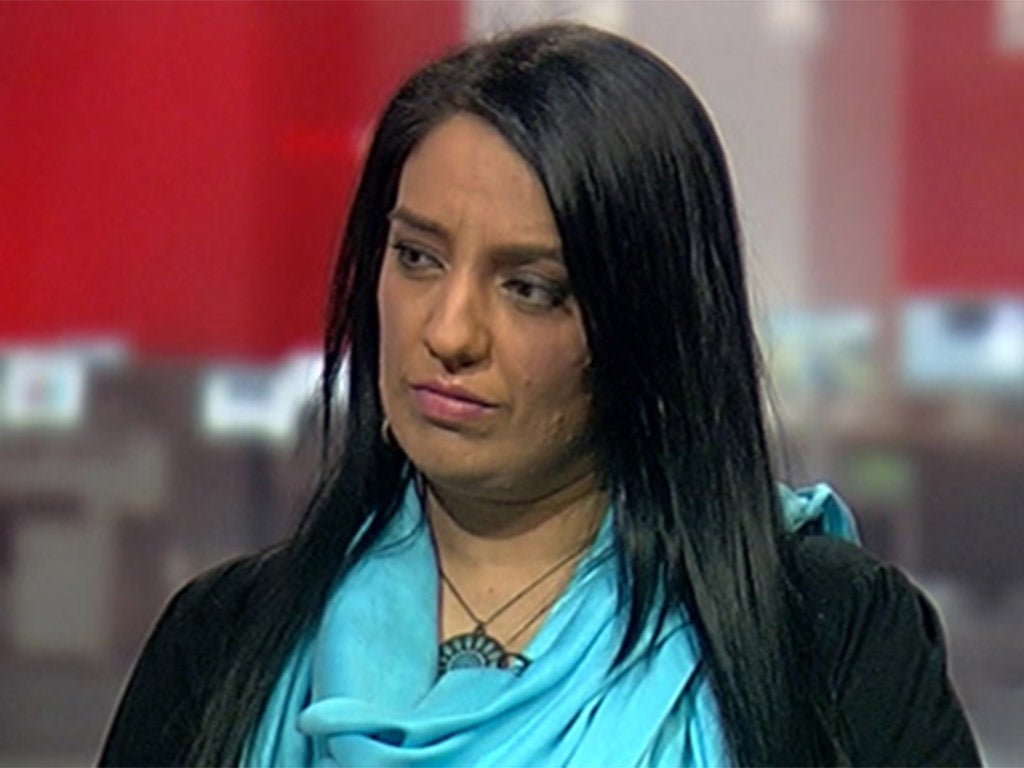Honour killings: Will tighter laws in Pakistan affect the UK too?
A new law in Pakistan has closed a loophole that allows honour killing trials to collapse if the family forgives the accused. But will it help curb the brutal practice? David Barnett investigates

Shafilea Ahmed was like most British teenagers. She wanted to wear fashionable clothes, she wanted to hang around with her friends, she wanted boyfriends. Shafilea had ambitions to go to university, to study law.
Unlike most British teenagers, Bradford-born Shafilea ended up dead at the age of 17, killed by her own parents following months of violent abuse. Iftikhar and Farzana Ahmed are both in prison, jailed in 2012 for a minimum of 25 years each.
They denied the charges at Chester Crown Court. To them the crime was not theirs. It was Shafilea’s, for daring to bring shame on the family with her Western ways and her ambitions.
Shafilea Ahmed died on 11 September, 2003, for honour. Her case was a shocking one. But her murder is, according to Leeds-based charity Karma Nirvana, just the tip of the iceberg. Karma Nirvana runs a help-line and advice service for women in the UK at risk from so-called honour-based violence and forced marriage.
It’s difficult to know just how many women are suffering; many keep silent in case of retribution and the ingrained fear of bringing shame on their families.

But the charity says that in 2015, 6,700 calls were received. It had 250 reports of honour-based violence and forced marriage every single month; a quarter of those involved girls under the age of 17 – Shafilea Ahmed’s age when she died – while those from the 18–24 age range accounted for 40 per cent. The charity received six reports last year concerning children aged under 10.

Karma Nirvana was set up by Jasvinder Sanghera, CBE. Born in Derby, she describes herself as a “survivor of forced marriage”. Her 2007 memoir Shame, a Sunday Times bestseller, described in detail how she was shown a photograph of the man she was to marry, no arguments brooked. She was 14. Like Shafilea Ahmed, Jasvinder rebelled. Unlike Shafilea, she survived, running away from her family, incurring their wrath and bringing shame on her name. Now she is determined to help other women in the same situation.
Shame is the grease that oils the wheels of honour-based violence in Asian cultures. So much so, that on the sub-continent, in India and Pakistan, it has been sometimes difficult to obtain prosecutions for honour killings. The shame is the victim’s, not the perpetrator’s. If the family of the victim “forgives” the accused, then he can walk away from court, a free man. As most honour killings take place within family units, this has historically meant prosecutions collapsing, even when there is indisputable evidence of the dead body of a young woman before the court.
However, last month that changed quite significantly. Pakistan’s parliament unanimously passed legislation that closed this loop-hole; a “pardon” from the family can still get the accused off the hook of the death penalty, but they are instead faced with a mandatory life sentence.
“Without a doubt, this law is going to have an influence on the UK,” says Jasvinder Sanghera. “It should hopefully send a strong message to people over here and have a positive impact.”
Why should a law passed in Pakistan affect lives in England? For two reasons. The main one, says Sanghera, is that values held by Pakistani families are firmly entrenched in immigrant families to the UK, even several generations down the line.
She says, “Many people migrated to the UK in the early 1950s from Pakistan. We know that there are these attitudes about young women in areas of Pakistan and those values have become entrenched in families who have been living in the UK for decades.

“This new legislation in Pakistan is to be welcomed and obviously means things are going in the right direction. The question is whether it creates enough of a cultural shift to change attitudes over here.”
You might expect that violence and murder – whatever the reasons given for them – are more difficult to cover up and hide in Britain than they might be in, say, rural Pakistan. However, investigations into honour-based crime is something of a grey area in the UK. Last week the Huffington Post put in Freedom of Information requests to the country’s 43 police forces asking for the numbers of honour-based violence reports they had received from 2011-2016. In some areas, said the Huffington Post, just three per cent of reports resulted in charges.
Sanghera says, “In many cases, the victims are reluctant to prosecute, and there can also be a reluctance on the part of the CPS or the police to pursue cases.” This is partly because they think they might be accused of racism Sanghera adds.
The other factor is that families can close ranks. Shafilea Ahmed died in 2003 but it was nine years before her parents were eventually brought to court. Sanghera says, “Some families feel they are actually above the law. They have no remorse for their crimes. In their eyes, it is not them who has done anything wrong, but the daughter, the sister, who has brought shame on them in some way.”
There is another reason why the law passed in Pakistan last month might have a positive effect for British Asian girls as well. Some 500 women a year are killed in Pakistan in honour killings; this, says Sanghera, could be just the tip of the iceberg. And many of both the reported cases and those that never come to court involve young British Asian women.
“What British families do if they can’t control a young woman in the family is take them out of the country,” she says. “There are usually family connections back in Pakistan. It’s relatively easy to just take them over there. And once they’re over there… they can fall off the radar.”
It doesn’t necessarily have to result in death, of course. Sometimes it’s considered that a marriage will curb any rebellious instincts in a young woman. Naz Shah was 12 when she left her native Bradford – at the behest of her mother who was in an abusive relationship – to live with family in Pakistan. She had a nikah (Islamic wedding) to a cousin at the age of 15, which she says she was coerced into through emotional blackmail.
The marriage did not last once Shah and her husband returned to the UK. She is now Member of Parliament for Bradford West, displacing George Galloway from the seat in 2015, and a strong campaigner on the issues of forced marriage and honour-based violence.
Shah welcomes the new law in Pakistan, saying, “For me it does have implications for the UK, especially for girls who are taken abroad. Before this law, you could quite literally get away with murder in Pakistan. This, hopefully, breaks the back of that.” She pauses. “But we know that Samia wasn’t the first girl that this has happened to, and I’m not really that confident that she’ll be the last.”

Samia Shahid was from Bradford like Shah. She was 28 years old when she died in Pakistan in an alleged honour killing. Her ex-husband Chaudhry Muhammad Shakeel is accused of her murder and her father Chaudhry Muhammad Shahid is being held as a suspected accessory to the crime. Both men are due to appear in court in Jhelum, northern Punjab, on 26 November. Ms Shahid’s mother, Imtiaz BiBi, and her sister, Madiha Shahid, have both been named “proclaimed offenders” by investigating officers who believe they were involved in the death and want to question them. Legal processes to arrange their mandatory appearance at court from their homes in Bradford are currently underway.
Shah has a particular interest in the Shahid trial – it is down to her that the case has even made it to court. Sha says, “She was one of my constituents and I started to hear things about her being taken to Pakistan so I got involved and I pushed for an investigation. I honestly believe that had it not been for me she would have been dead and buried and no one would have ever known what happened or heard of her ever again.”
Shah believes that while the new law in Pakistan will help, attitudes need to change in the UK if the problem is ever to be resolved. She says, “There are girls who go missing, we don’t know where they are, we don’t know what’s happened to them, we hear nothing from them year in, year out.

“I am asking questions at the moment in Government because I am not convinced that we have got the safeguarding of young women in this country right. We need far stronger checks and balances. There is a lot of good work happening but we need a more cohesive response. When a girl goes missing abroad or there’s a death we shouldn’t be leaving it up to the local police in that country to deal with it.”
Shah brings up the comparison of Madeleine McCann, who disappeared in Portugal aged four in 2007. “There has been a lot of UK police involvement in that case,” she says. “And quite rightly. She is a British girl who went missing. We should have the same involvement when young Asian girls are taken out of the country.”
But ultimately, Sanghera says, a cultural sea-change is required at family level both on the sub-continent and in the UK. Attitudes cannot be blamed solely on the older generation. “There was a recent BBC poll on the subject of honour-based violence and a very high percentage of young men said they could justify abuse against a sister or female family member if she was thought to be bringing shame on the family.
“We need to tackle this at school level, we need to get the Government to recognise that this has to be a priority if things are going to change.”
And what might be most surprising to some is that honour-based violence is not necessarily the result of some macho, patriarchal ideas of male control. After all, warrants have been issued against Samia Shahid’s mother and sister. Shafilea Ahmed’s own mother is serving 25 years in jail for her murder.
Sanghera says, “In my experience it is the women of the family who are upholding the honour system. They are the ones who are perpetuating the idea that shame cannot be brought on the family. After all, honour killings are not just about who actually deals the killing blow. They are also about who allows and encourages these murders to take place.”
Karma Nirvana runs a confidential helpline on 0800 5999 247 and can also be reached through karmanirvana.org.uk
Join our commenting forum
Join thought-provoking conversations, follow other Independent readers and see their replies
Comments
Bookmark popover
Removed from bookmarks